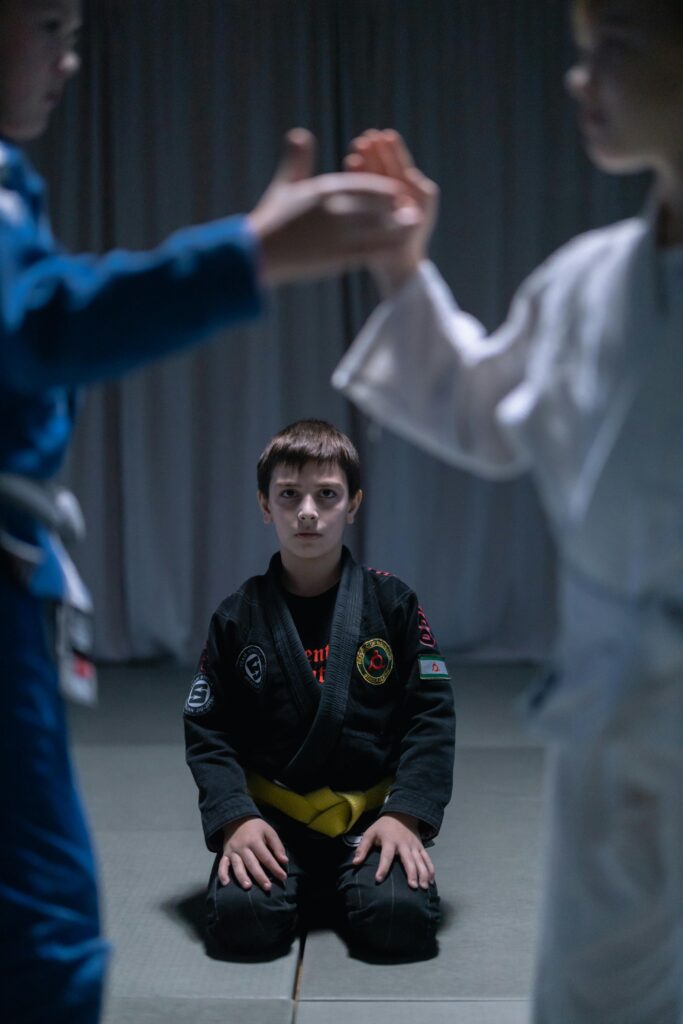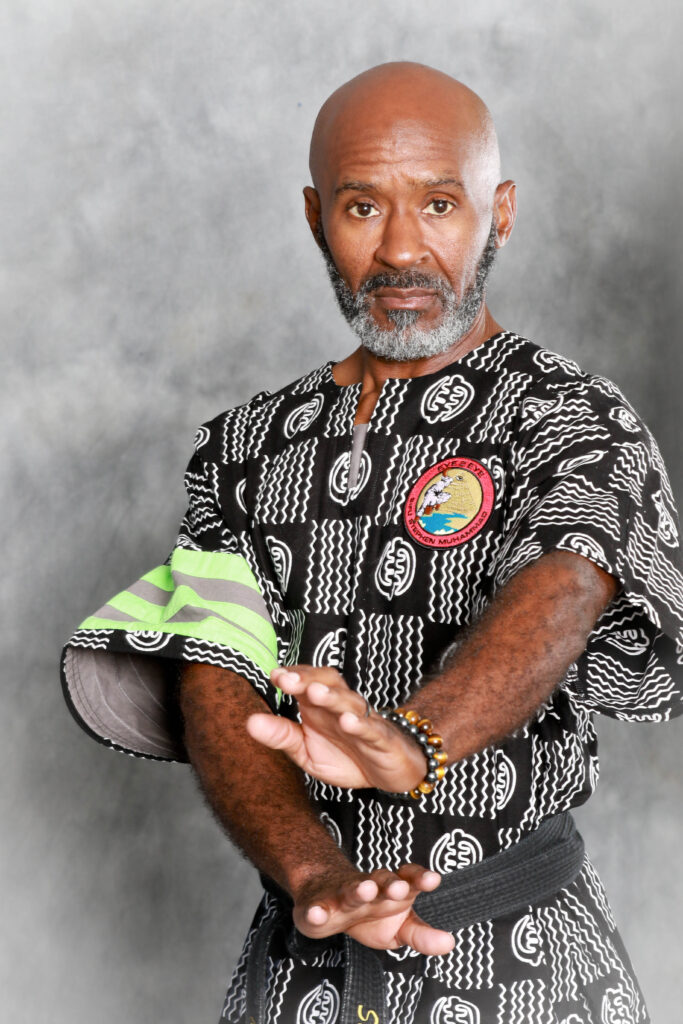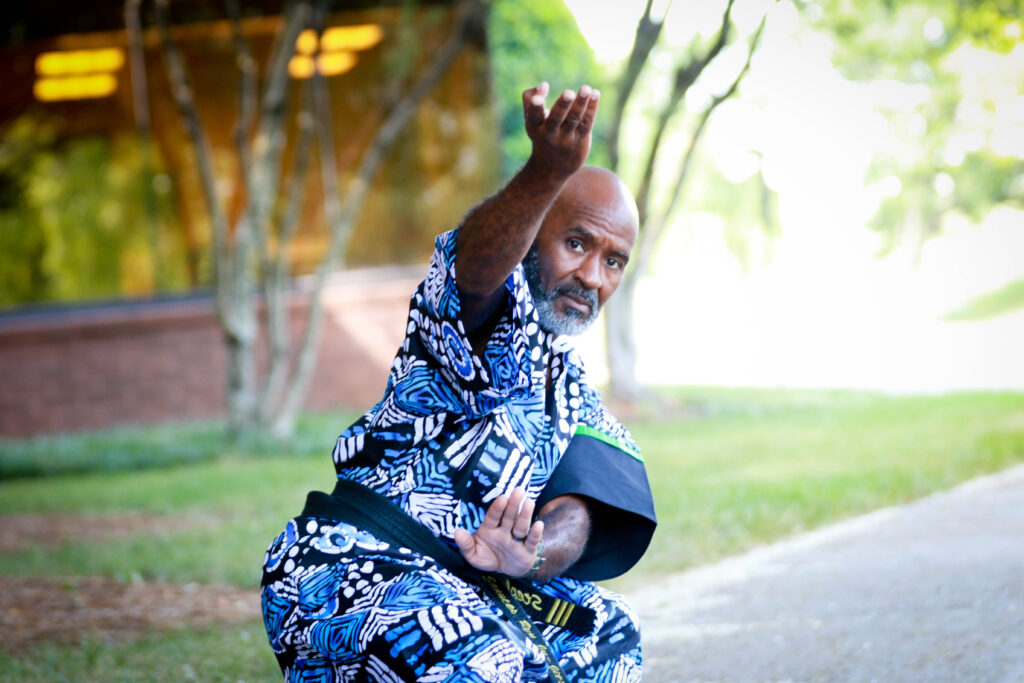Fear has a way of creeping into your mind when you least expect it. Whether you’re walking alone at night, facing a high-pressure situation, or just dealing with everyday stress, your brain reacts instinctively—often in ways that make fear worse. But what if you could train your mind to handle fear differently?
This guide shows you how martial arts can rewire your brain to handle fear. Through consistent training, you develop sharper reflexes, a calmer mind, and the ability to make smart decisions under pressure. Let’s break down how this works.
Understanding Fear: The Brain’s Response to Threats
Fear controls more than most people realize. It kicks in before logic has a chance, dictating reactions and decisions. But that response isn’t set in stone—training can change how the brain handles fear.
The Science of Fear: What Happens in Your Brain?
The amygdala reacts the moment danger appears. It triggers the fight-or-flight response, flooding the body with adrenaline and cortisol. Muscles tense, the heart pounds, and breathing speeds up—all within seconds.
At the same time, the prefrontal cortex, responsible for clear thinking, gets overpowered. That’s why fear leads to freezing, poor choices, or panic. The body acts before the brain has time to process what’s happening.
Why Chronic Fear is Dangerous
Living in a constant state of fear wears the body down. Over time, it leads to:
- Increased anxiety – Always expecting the worst.
- Poor decision-making – Thinking clearly becomes harder.
- Weakened immune system – The body stays in stress mode.
- Trouble focusing – The mind stays stuck on survival.
This cycle feeds itself, making fear stronger. But martial arts training forces the brain to work differently.
How Martial Arts Disrupts Fear Patterns in the Brain
Training exposes the mind to controlled stress. Instead of letting fear take over, the brain learns to analyze and react with intention. Each time someone spars, drills techniques, or pushes through fatigue, their nervous system adapts.
Sparring and self-defense drills push the body while keeping the brain engaged. The result? A trained response that prioritizes clarity over panic. That’s why martial artists stay composed in high-pressure situations—their brains have been trained for it.
Neuroplasticity: How Martial Arts Reshape the Brain
The brain constantly rewires itself based on experience. Repeated training creates new neural pathways, strengthening the ability to handle fear with control instead of impulse.
The Brain’s Ability to Adapt and Rewire
Flinching, freezing, or panicking is normal in untrained individuals. The brain defaults to instinct. But with repetition, it changes. Techniques become second nature, and reactions shift from emotional to strategic.
Martial arts force the brain to stay engaged while under stress. The more this happens, the less likely fear will override logical thinking.
Strengthening Neural Pathways Through Training
Training builds habits that override panic. The brain becomes used to responding instead of reacting. Over time, it learns to:
- Stay calm under pressure – Fear no longer dictates actions.
- React with precision – Movements become instinctive, not panicked.
- Make faster decisions – The mind processes threats efficiently.
Drilling techniques in live situations is what makes this happen. When the brain is exposed to repeated challenges, it adapts.
Enhancing Focus and Emotional Regulation
Martial arts don’t just build skill—they shape mindset. Training requires focus, discipline, and control under pressure. These skills carry over into everyday life.
The ability to remain composed during a fight translates to handling stress in other areas. Whether it’s a confrontation, a demanding task, or an unpredictable situation, the brain responds with control instead of panic.
Training the Nervous System for Fear Control
Fear isn’t just in your mind—it’s in your nervous system. When faced with a threat, your body reacts before you even think. Martial arts retrain those automatic responses so you can handle pressure without freezing or panicking.
Exposure Therapy: Training Under Stress to Overcome Fear
The more you avoid fear, the stronger it gets. If you never step into pressure, your body never learns to handle it. The best way to gain control is through exposure, and that’s exactly what martial arts do.
- You train under pressure—sparring forces you to think, react, and stay composed.
- You experience controlled stress—your brain rewires itself to stay calm instead of panic.
- Your reflexes sharpen—movements become second nature, so hesitation disappears.
The reason sparring is so effective is that it simulates real confrontation in a safe environment. With time, situations that once felt overwhelming start to feel manageable. That’s how you retrain fear.
The Role of Breathwork in Fear Regulation
Fear and breathing are connected. The moment you panic, your breath becomes short and shallow, making you feel even more out of control. Martial artists train their breath because control starts there.
- Slow, deep breaths lower your heart rate.
- Regulated breathing keeps your mind clear.
- Oxygen control prevents adrenaline from taking over.
A fighter who controls their breathing controls their reaction to fear. Whether you’re facing an opponent or a stressful situation in daily life, mastering breathwork keeps you in charge.
Strengthening Reflexive Responses
Fear slows you down when you hesitate. Martial arts eliminate hesitation by hardwiring your reactions through repetition. The more you train a technique, the less you have to think about it—your body responds instantly.
This is why instructors drill movements over and over. It’s not about memorization—it’s about rewiring your nervous system so your reflexes take over before fear does. Training builds a level of automatic response that most people never develop.
Building Psychological Resilience Through Training
Handling pressure isn’t just about skill—it’s about mental conditioning. Training teaches you to face difficulty head-on instead of backing down. The more you push through, the stronger you become.
How Martial Arts Reduce the Fear of Failure
Most people fear failure more than anything else. They avoid challenges because they don’t want to look weak or make mistakes. Martial arts change that mindset fast.
- You fail constantly in training. Every time you get thrown, tapped out, or corrected, you learn.
- Mistakes become lessons. Instead of fearing failure, you use it to improve.
- Confidence comes from resilience. When failure is no longer a threat, neither is fear.
Fighters don’t wait until they feel confident to act—they build confidence by acting despite uncertainty.
Confidence and Self-Control: The Keys to Fear Mastery
Confidence isn’t loud—it’s quiet certainty. When you train consistently, you stop doubting yourself because you’ve tested your abilities. You know exactly what you can handle.
- Situational awareness helps you recognize threats early.
- Self-discipline lets you control emotions instead of reacting.
- Mental clarity keeps you in charge of your responses.
The result is simple: you stop letting fear decide your actions.
The Long-Term Psychological Benefits
Martial arts develop more than physical skill. The mindset you build in training affects every part of your life.
- Emotional control improves your decision-making.
- Higher stress tolerance keeps you calm in tense situations.
- Resilience makes it easier to push through obstacles.
This is why so many people seek out self-defense training—they want more than just physical skills. They want the ability to handle whatever life throws at them.
Applying Martial Arts Principles Beyond the Dojo
The discipline and mental strength gained through training don’t stay in the gym. They affect how you handle everything—stress, pressure, and fear.
Managing Stress and Anxiety in Daily Life
Fear isn’t always about physical danger. It’s in everyday stress, social situations, and unexpected problems. Martial arts retrain your mind to handle pressure logically instead of emotionally.
- You learn to stay composed under pressure.
- Your breathing habits keep your stress levels in check.
- You trust yourself to find solutions instead of panicking.
When you train for high-stress situations, everything else feels easier to manage.
The Power of Discipline and Consistency
Most people quit when things get uncomfortable. Martial artists train past discomfort until persistence becomes automatic. That ability to push through difficulty changes everything.
- Your mindset stays strong under pressure.
- You don’t let setbacks slow your progress.
- You trust hard work more than motivation.
Discipline isn’t about willpower—it’s about habits. Training builds the habit of showing up, doing the work, and improving no matter what.
Martial Arts as a Tool for Mental Strength
Martial arts don’t just change how you fight. They change how you think. The ability to face stress, control emotions, and act decisively carries over into every aspect of life.
The mindset you build in training stays with you forever.
The Warrior Mindset Starts Here
Fear doesn’t respect hesitation. It takes over when you let it. You train so that when the moment comes, you don’t freeze, you don’t back down—you move. Your mind and body respond because they’ve been here before.
Bujutsu is the path to that level of control. It’s not just techniques—it’s learning how to command your space, read the energy of a room, and move with power that speaks before you do. Train with us. Build that kind of presence. Walk like someone who’s already won.
FAQs
Does martial arts help with fear?
Absolutely. Martial arts train both your body and mind to handle fear differently. Instead of freezing or panicking, you learn to stay calm, assess the situation, and react with control. Through repeated practice, your brain rewires itself to recognize challenges as something you can handle, rather than something to be afraid of.
Can you train your brain to overcome fear?
Yes, and martial arts are one of the best ways to do it. Every time you step on the mat, spar, or push past discomfort in training, your brain adapts. Over time, fear stops feeling like an obstacle and becomes just another challenge you know how to face head-on and conquer.
How long does it take to see a difference in confidence?
It varies, but most people feel a shift within a few weeks of consistent training. The more you show up, the more you push yourself, and the more you realize you’re capable of handling stress, pressure, and even confrontation. Confidence isn’t something you wait for—it’s something you build with every class.
Do I need to be in shape to start?
Not at all! The whole point of training is to get stronger, sharper, and more capable over time. Whether you’re a complete beginner or someone looking to refine your skills, we adjust to your level. Everyone starts somewhere, and we make sure you grow at a pace that works for you.
Is martial arts good for dealing with everyday stress?
Yes, and it’s a game-changer. The breathing, discipline, and mental focus you develop in training carry over into daily life. You’ll find yourself handling stressful situations with more control, less overreaction, and a stronger sense of calm—whether it’s at work, in relationships, or just dealing with unexpected challenges.
What’s the best martial art for self-defense?
It depends on what you’re looking for, but Bujutsu is one of the best options for real-world self-defense. It’s practical, adaptable, and teaches you how to use leverage and positioning to your advantage—no matter your size. The goal isn’t just to fight but to neutralize threats quickly and decisively.





